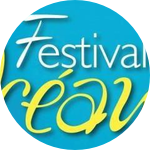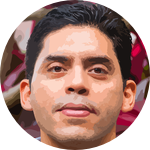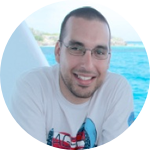About This Project
Artisanal fishermen from the island of Guanaja in the Caribbean coast of Honduras, are known for targeting species associated with the upper mesophotic coral reef ecosystems that lie between 30 and 150 m deep. Through this project I aim to assess biomass composition of this deep ecosystem employing a submersible drone. The results will be applied to construct a trophic model which will be used to guide the development of local fishery management strategies.
Ask the Scientists
Join The DiscussionWhat is the context of this research?
Used as a baseline reference, a trophic model provides ample opportunities for smart management, including the application of quantitative indicators to asses the impact of fisheries management strategies, or to simulate outcomes before implementation.
Required inputs for the model include: benthic habitat distribution maps, fish biomass data, and coral reef and macro-algae coverage data which are already available. Based on participatory technics such as focus groups, the fishers and I will define the catch and effort parameters, i.e., how much fish and of what species are fisher's catching. Finally, I need to be collect data on the size, numbers, and types of species occurring at the upper mesophotic zone around the island.
What is the significance of this project?
I'm focusing on the island of Guanaja because this is the home for more than 60 fishers involved in a dangerous fishery that uses scuba gear to target lobsters at great depths. Countrywide, several fishers die of decompression sickness every year. One alternative fishery is based on the assisted enhancement of lobster populations in shallow water depths. This approach involves the deployment of artificial reefs in shallow waters accessible to fishers through free diving (snorkeling) and therefore transitions scuba divers into a similar, but safer, fishery. A trophic model will feed a comprehensive analysis on the viability of this alternative fishery.
What are the goals of the project?
1. Construct a model that describes the ecological structure, the trophic dynamics, and the economic value of the marine resource surrounding Guanaja.
2. Apply dynamic simulations based on this model, to assess the ecological viability of a lobster fishery based on artificial reefs.
Budget
A core component of my research project is to assess local fisheries from Guanaja island, for which estimation of fish biomasses in their natural habitat is required. Many fishers from Guanaja are targeting species associated with the upper mesophotic coral reef ecosystems that lie between 30 and 150 m deep.
Access to waters below 30 m usually requires sophisticated rebreathing equipment, extensive training, and poses a significant health risks. For this project, such risks will be avoided by employing an OpenROV which is a low-cost, remotely operated mini-submarine. OpenROV hosts a “Do It Yourself” community of amateur and professional submarine builders in over 30 countries that pursue underwater exploration.
Logistical resources (fuel, vessel, etc.) will be provided by a joint cooperation between the Center for Marine Studies and the Municipal authority.
Endorsed by
 Project Timeline
Project Timeline
Field work on Guanaja island will start on December 27, 2017 and will continue until February 15. Data analysis will be carried out in Germany and results presented as a thesis defense on August 2018.
Sep 20, 2017
Project Launched
Feb 07, 2018
Start field work on Guanaja
Feb 15, 2018
Conclude fieldwork on Guanja
Jul 31, 2018
Present final results as a thesis defense
Meet the Team
Team Bio
Institutional collaborators:
ISATEC Program at the University of Bremen
Center for Marine Studies in Honduras
Municipality of Guanaja in Honduras
Andrés Alegría
I’m particularly interested in studying the ecological dynamics of the marine environments and documenting biodiversity from the vastly unexplored ocean depths in my home country, Honduras. The results of my research will contribute towards the development and application of science-based strategies for a smart management of local fishing resources.
A bit more of my work here: https://www.behance.net/andres...
Additional Information
I'm a Honduran scholarship holder at the postgraduate program in aquatic ecology from the University of Bremen, Germany. This project is part of my MSc. thesis research to be conducted in my home country.
Last year I published an article describing previously unreported coral reefs in the Caribbean coast of Honduras (Alegría and Pérez, 2016)*. I’m convinced that the exploration of these deeper areas around Guanaja will result in new reports that will add great value to local marine management and conservation efforts.
Project Backers
- 3Backers
- 3%Funded
- $68Total Donations
- $22.67Average Donation


